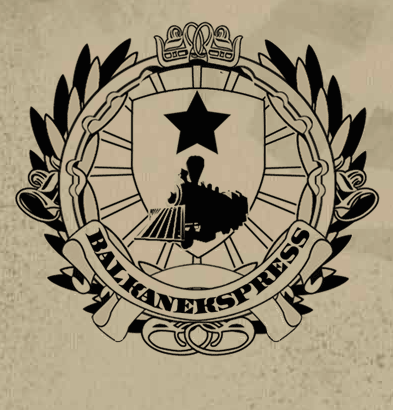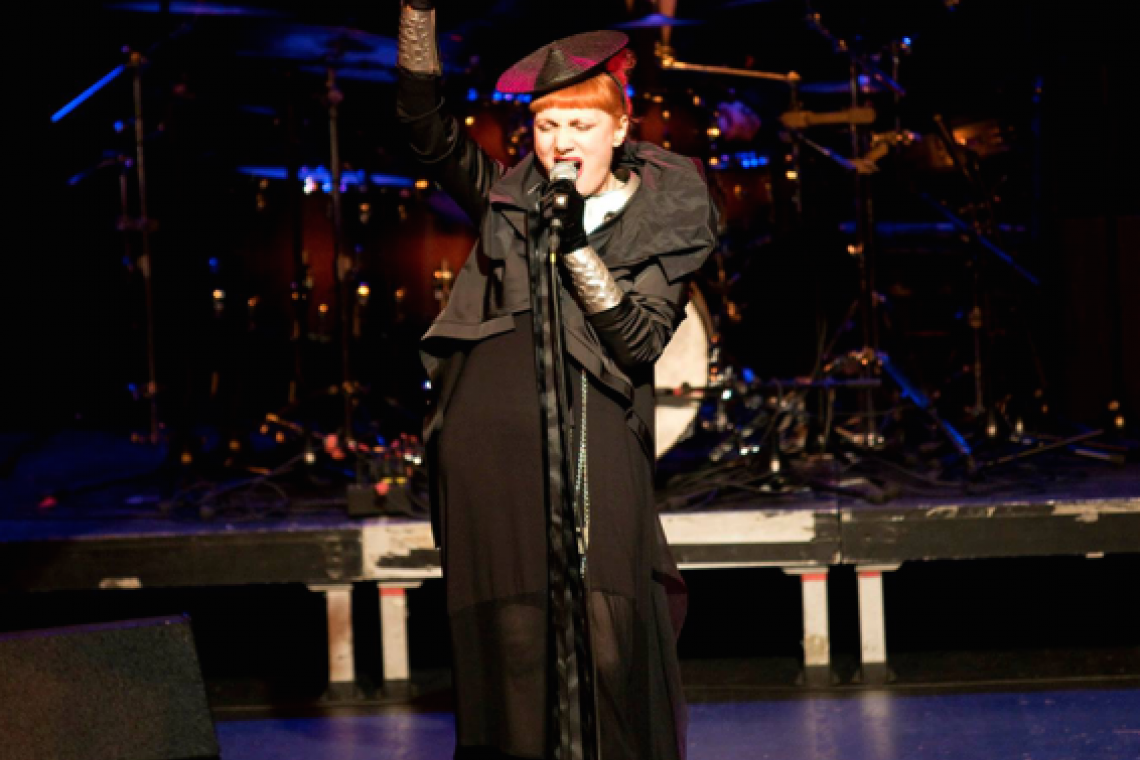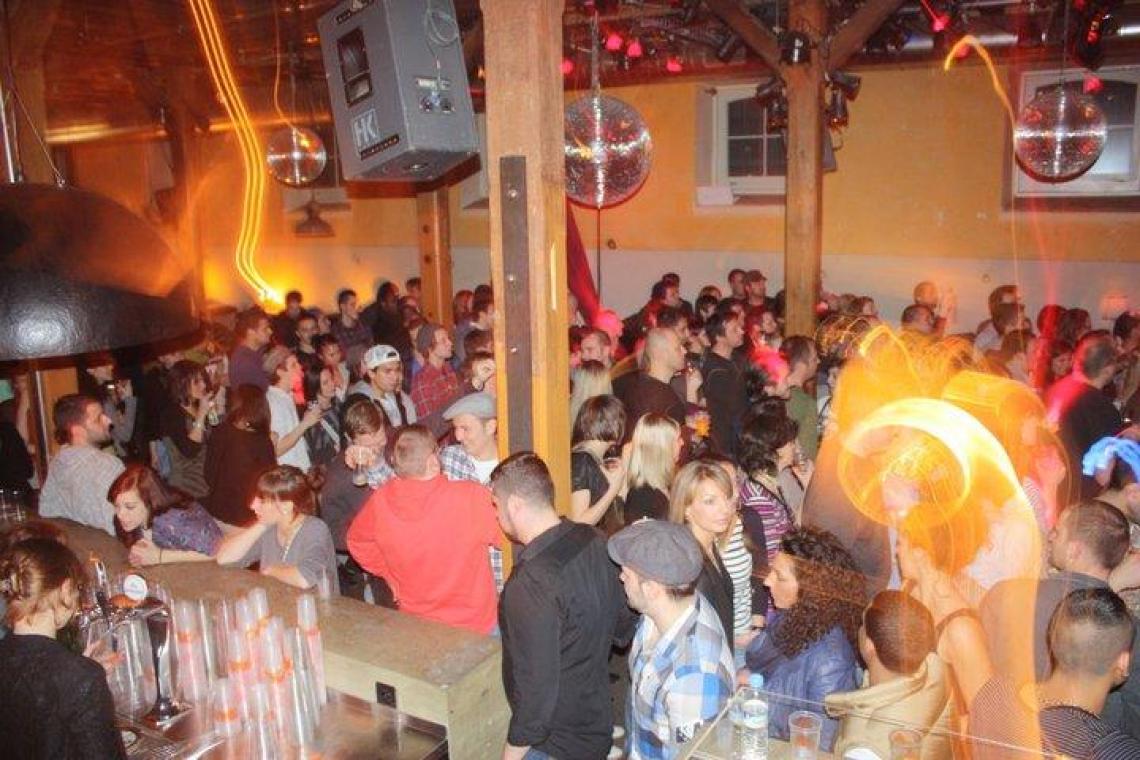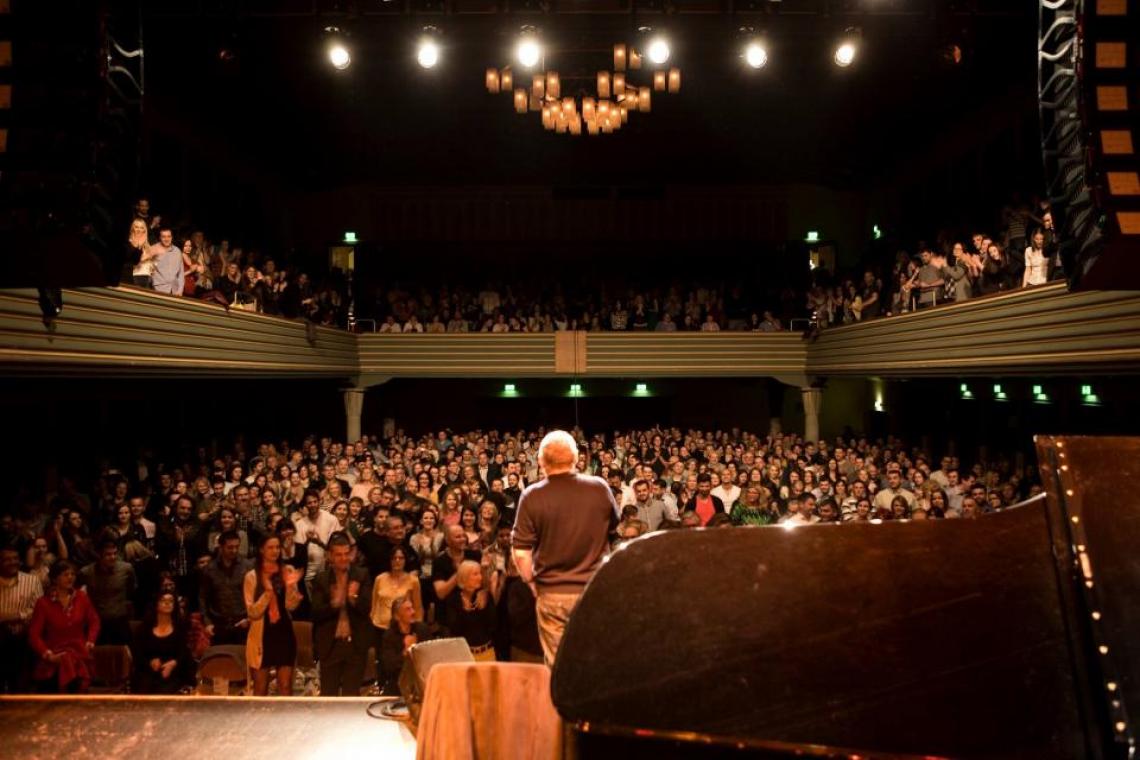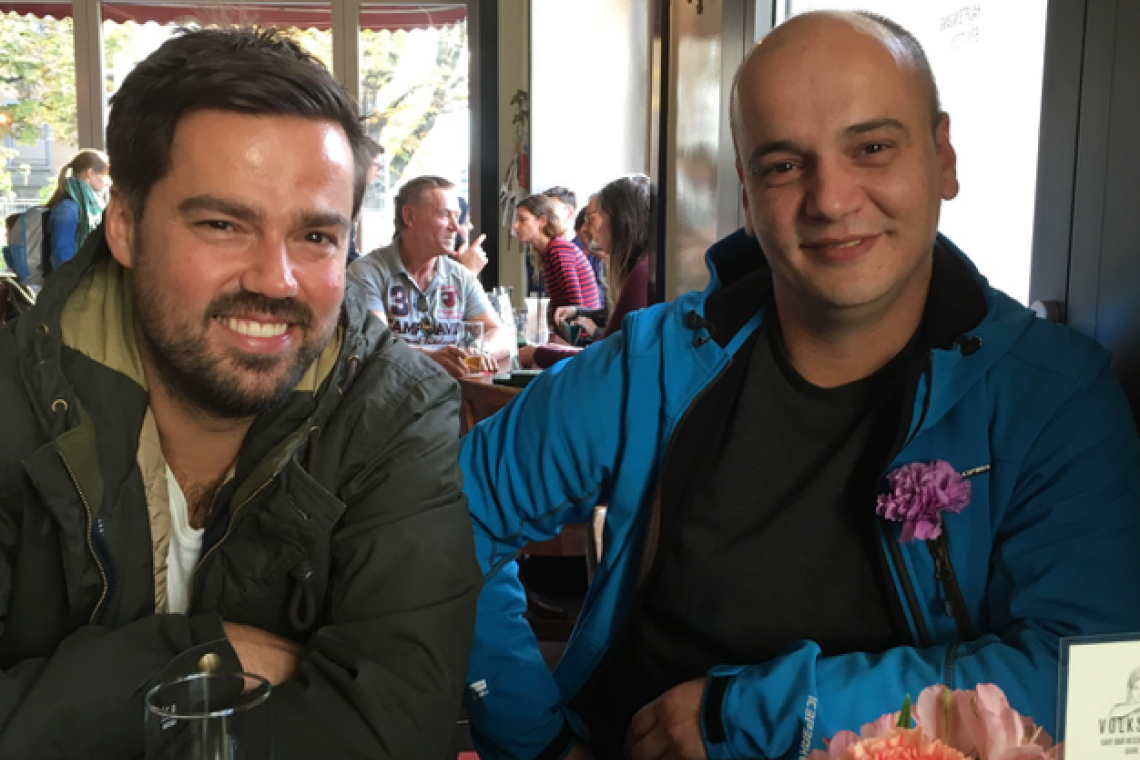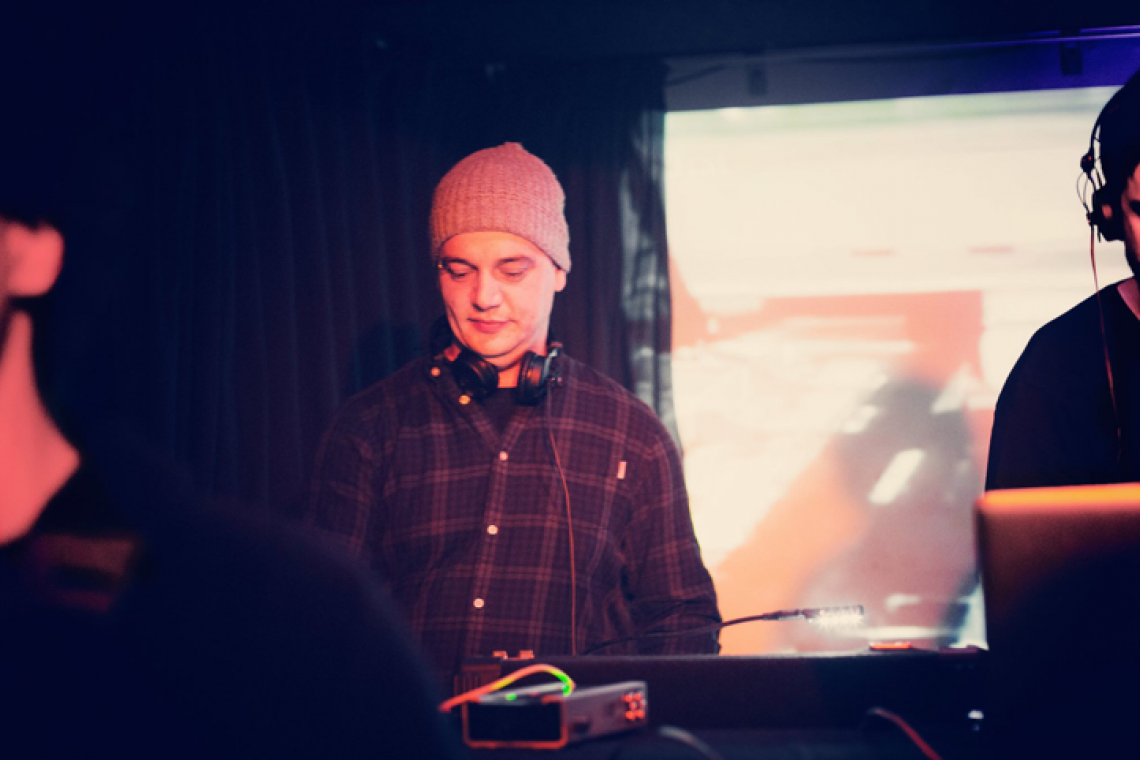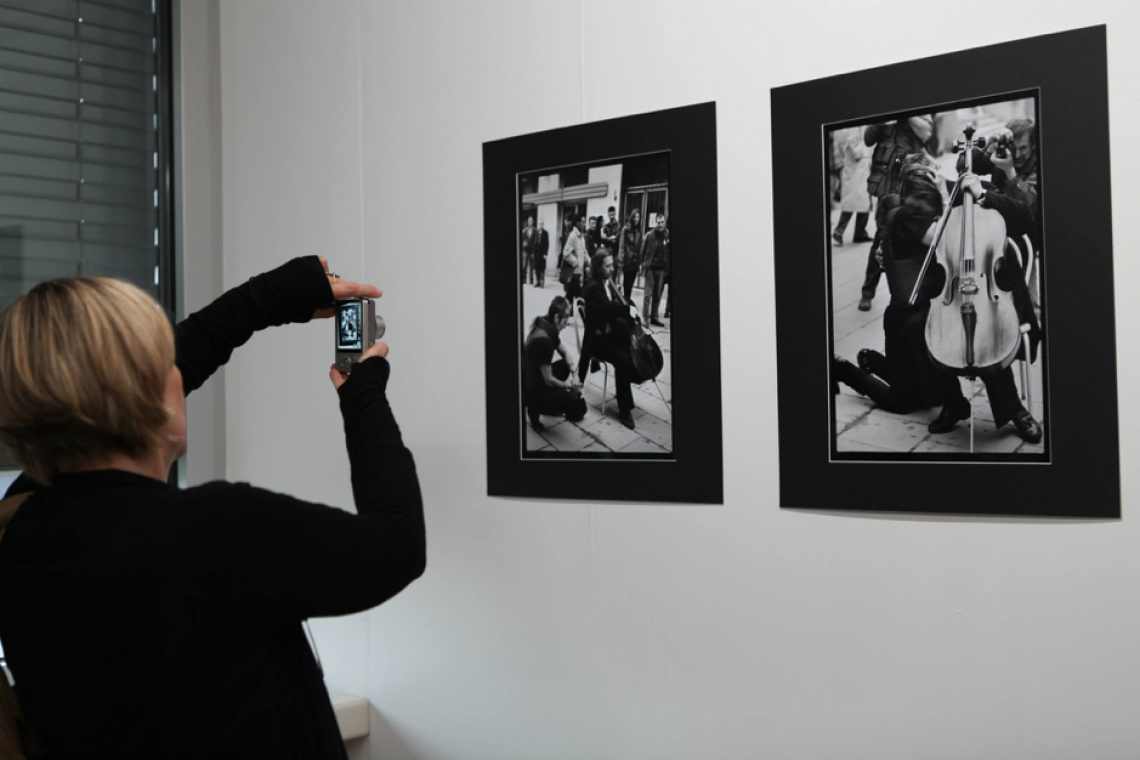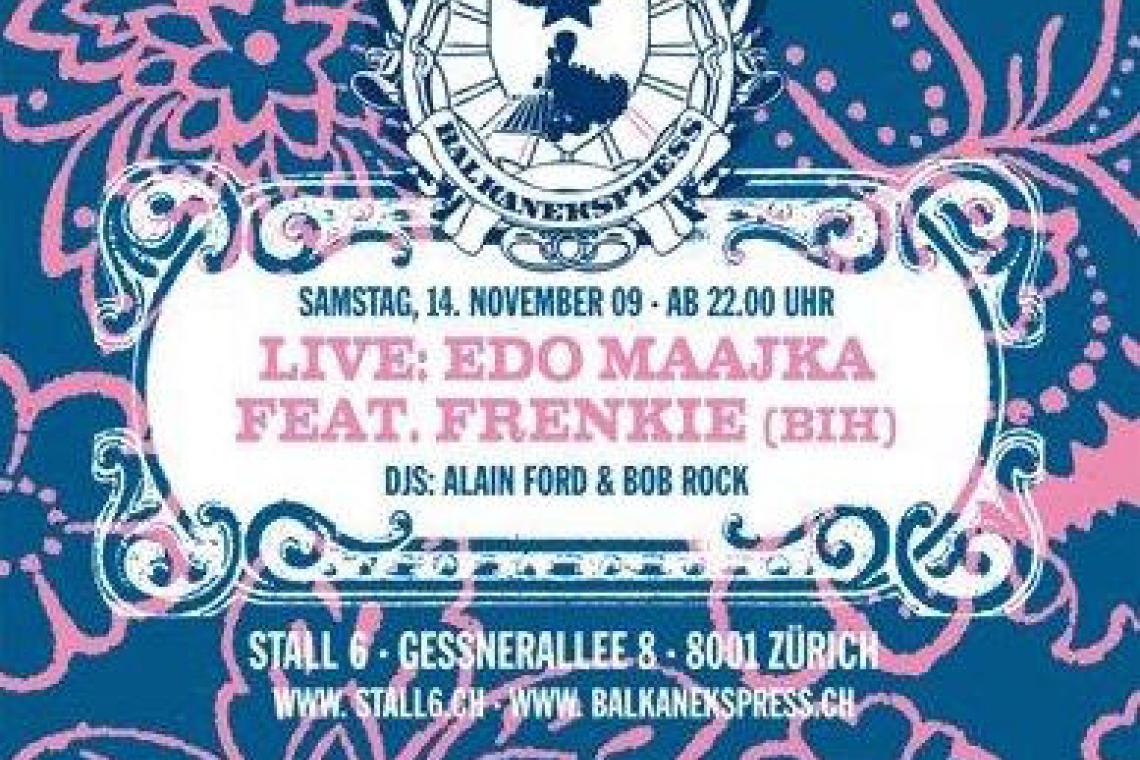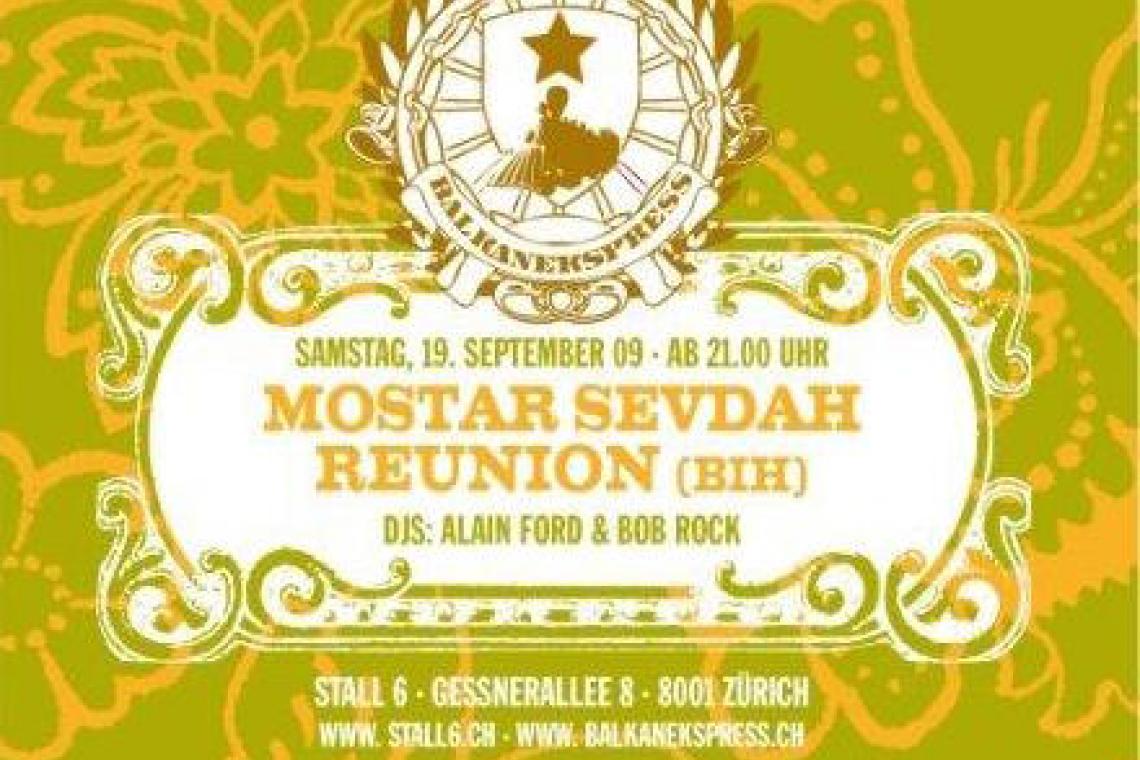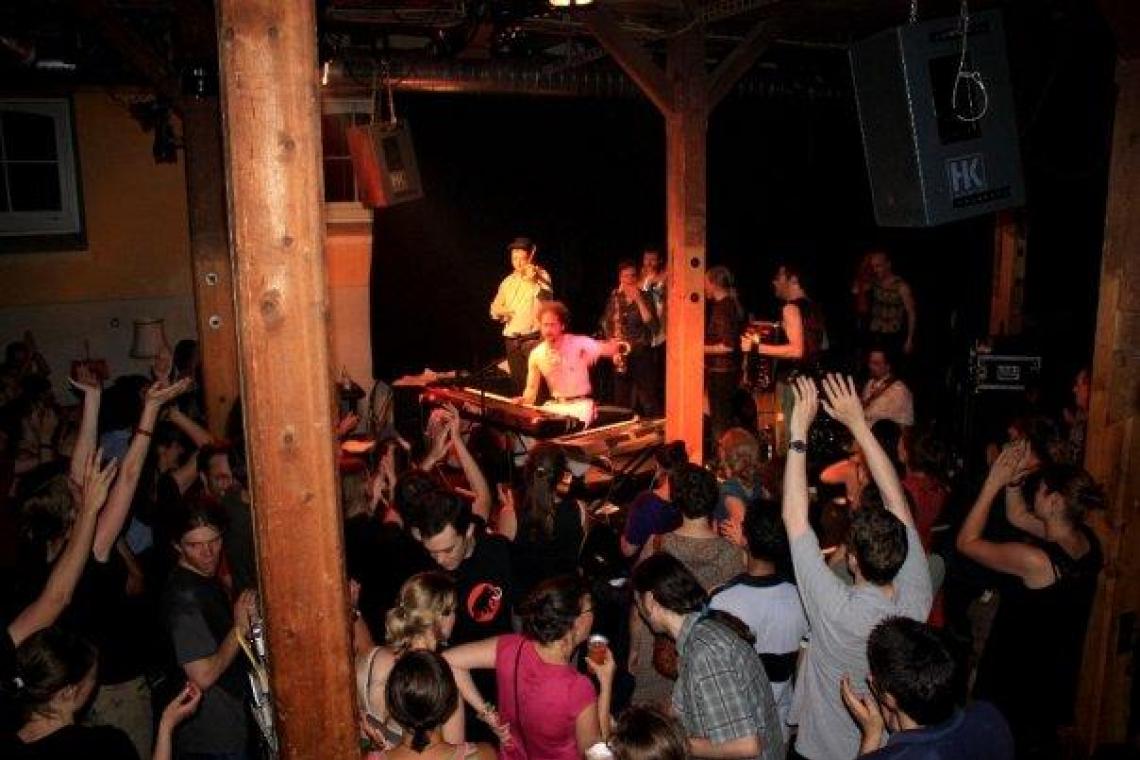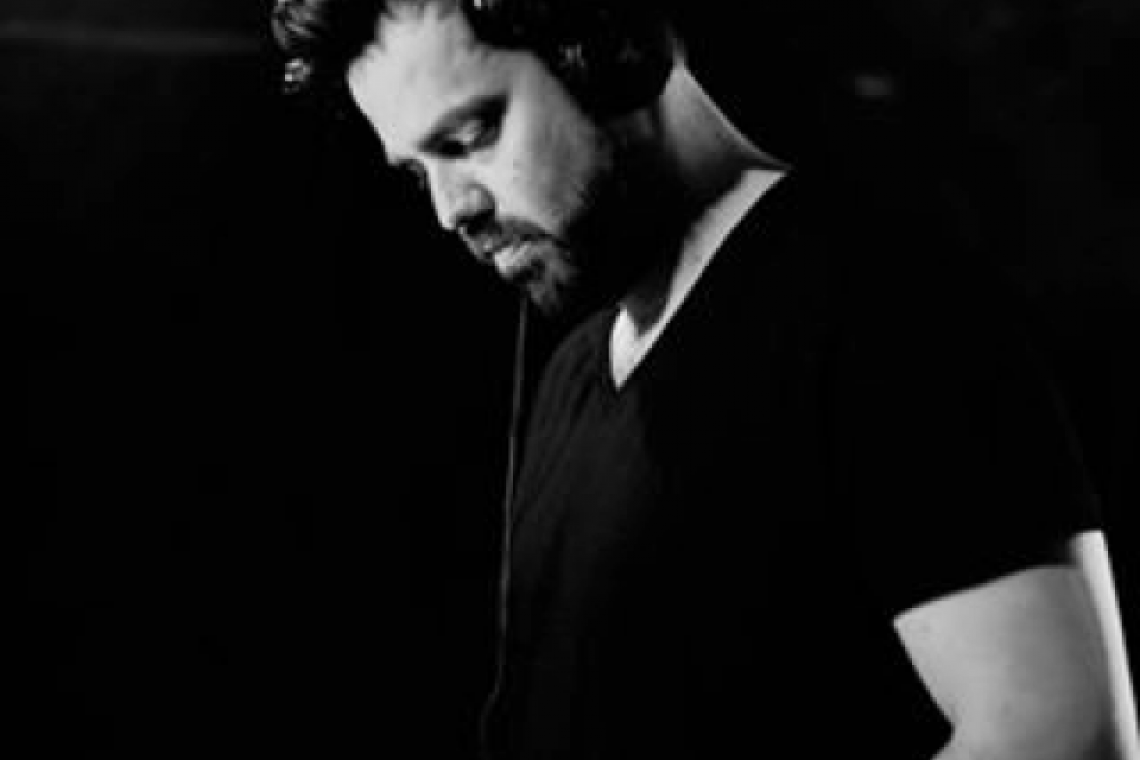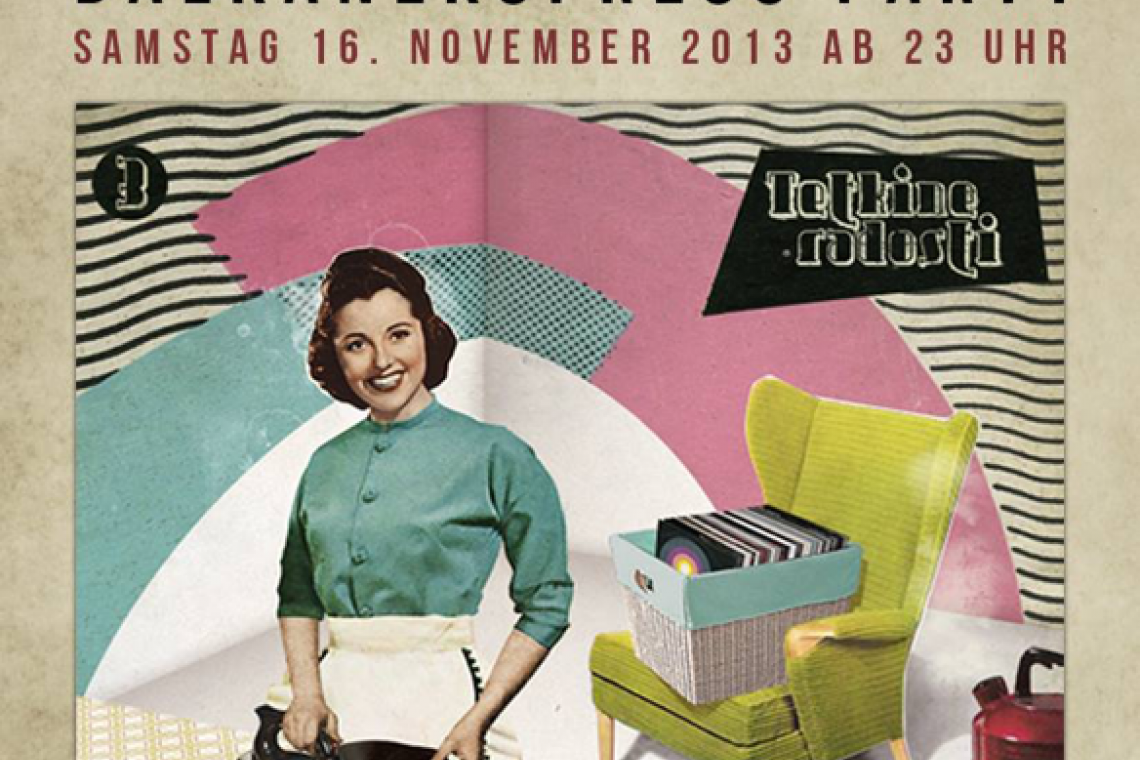BalkanEkspress organised the first parties where electronic and Balkan music were mixed and it thus established a new trend of club music. Concerts held by bands from the former Yugoslavia, organised by BalkanEkspress, are regular events in the club scene of Zurich, which has considerably helped these bands to advance their careers in the country.
Balkan is cool!
Adi: Everything started with us working as DJs in order to earn some money for our education. We started with electronic music and then progressively added Balkan music. For me it was very inspirational when I heard Esma Redžepova's music for the first time. I thus fully opened up to Romani and other Balkan music and to the possibility to incorporate them in a new, alternative and urban context.
Almir: Our first official party was held at Back and Brau in 2005, when we played electronic music, drum&bass and than we started adding Balkan sounds. People liked this very much, they danced, approached us and asked how we made the mix. This encouraged us and we therefore decided to continue doing this.
Adi: We were the first ones to incorporate Romani rhythms into modern music. We were all fed up with folk music and the fact that Balkan music was identified only with that kind of music. We saw Romani music as an alternative type of music, which is part of our culture, but it is not the folk music that everyone is used to listening to. In addition to this, Romani music could very well be mixed with other types of music.
Almir: Romani bands were coming to Switzerland as part of world music and there were no after-parties following the concerts, and even if they would happen, that would be a completely different type of music. We realised that it bore great potential. We were really the first DJs that started playing Balkan music at official clubs and mixed electronic music with Balkan rhythms.
Adi: We gave the public something that had never happened before in Switzerland, namely a mix of Balkan and Swiss culture. Young people from our generation heard many things about the Balkans from their parents, and some of them maybe experienced a small part of the culture during family celebrations. However, they did not really feel the Balkan identity, although they felt that it belonged to them. They were still in a way a bit afraid of that culture, of the fact that they were from the Balkans. For them, it was a complete shock to hear Romani or Yugoslav rock music mixed with electronic beats, to dance to it and that all of it was cool! They were no longer ashamed that they were from the Balkans or because of Balkan music. It was new! For them it was really a shock that all of it could be cool!
Almir: At the beginning, there were people that even refused to talk to us in our language, they talked only in German. Over time, it turned out that they spoke our language very well. We truly helped people coming to our parties and concerts to emancipate themselves through this music and accept their origin. We have shown that it can be cool! On the other hand, it was our achievement that the Swiss no longer saw the Balkans as something negative and that they changed their attitude towards us, as well as towards our culture.
Adi: In the period 2006-2008, we cooperated with Moods, a well-known club in Zurich. We organised concerts of Fanfare Ciocarlia, Amira Medunjanin, Boban Marković, Mostar Sevdah Reunion, Baba Zula, and a lot of parties, where the Balkan sound became increasingly recognisable and popular. However, the colleagues at Moods wanted to keep the Balkan music as world music, and we wanted to create something more dynamic, more youth-oriented. We thus started working at Stall 6, where we got the possibility to do this.
Almir: At Stall 6 we started organising concerts of Balkans bands, which were more alternative ones. Some of the first concerts we organised were those of Dubioza kolektiv from Bosnia and Herzegovina, which is an internationally recognised band today. We also organised concerts of Zoster, Sars, Edo Majka, and we were also the first ones to organise a concert of Damir Imamović, which combines sevdah and jazz. He is a very famous musician even today and organises concerts throughout Europe. We also organised concerts at the clubs Exil and Gonzo.
Adi: It is very interesting how the audience changed during our concerts and parties. At the beginning the Swiss were our audience. There were also our friends, a few of them, but they created a good atmosphere, danced and socialised. The Swiss liked that. They liked the intensity of these parties and a completely free and relaxed atmosphere. Then more and more of our people started coming. These were younger persons, who somehow lacked a clear identity, who either ignored or suppressed their Balkan origin. They liked our music and our approach to mixing music, and they also liked to see that young Swiss also enjoyed our parties and concerts. There was always a lot of energy, people danced and socialised a lot.
Almir: Our intention was to turn the Balkan culture into a hipster culture. Everyone presented Balkan music just as world music, and we made entertainment out of it. We truly managed to present the Balkan culture as something cool, something equally liked by the Swiss and Balkan people.
Adi: Once, we made a party entitled Yugos von nebenan (Yugoslav neighbours), and another time a party entitled Alles, was Sie schon immer über den Balkan wissen wollten, aber bisher nicht zu fragen wagten (Everything you always wanted to know about the Balkans, but were afraid to ask), as in the movie by Woody Allen. Our intention was to also irritate and provoke with the Balkans a bit, and to play with political correctness. The Swiss audience would approach us and tell us that they had never been to a better party, a friendlier party. We never had any security guards, because we never needed them, we never had even the slightest problem. Everyone came to see us, Croats, Serbs and Muslims, and everyone felt well.
Almir: Everyone agreed when attending our events and parties. Probably because we ourselves did not have any national inclinations, and for us it did not matter whether a band was from Bosnia and Herzegovina or Croatia or Serbia, what mattered was that the band was good and that it offered some alternatives and new ideas. And this is what people recognised and it enabled them to feel good, no matter who they were.
Adi: We ourselves lived this Balkan melancholy and passion, and we also danced and sang with the public. Our events were not like others, where music trends dominated and where everyone acted like fish in an aquarium, looking at one another, but not communicating or interacting. We loosened the stiffness! Balkan music is quite melodic and this makes people dance very fast. It is completely different than techno, for example. We shocked all the time with our music. We always linked the values of the Balkans and Balkan music with music trends. Everyone asked us where we found the courage to do that?! A good thing we did was the fact that we did not focus on individual names, but rather on the brand, BalkanEkspress. And the audience also identified themselves with BalkanEkspress.
Almir: We thus became more oriented towards domestic audience and bands that are interesting for younger Balkan audience. We helped many bands and musicians to come to Switzerland and organise a concert, at a time when they were unable to play and hold concerts back home. Here they would see what professional organisation was, they would meet Swiss musicians and see how they function on the music scene, and that would help them a lot in their further career. For them, this was a great motivation to overcome local obstacles, but also a boost for their self-confidence, because they would realise that they were good and that the audience wanted to listen to them.
We also started organising big concerts at the Volkshaus, and our greatest successes were the concerts of Đorđe Balašević and Josipa Lisac.
Adi: Now we regularly organise events at the BalkanBar at Photobastei, which is the largest exhibition area for photographs in Zurich. This is where we noticed that a new and younger audience was attending, which heard from others that we were doing good stuff. We differ from other DJs and organisers, because we always communicate with our audience. We participate in everything that happens, do not keep any distance to our guests and audience. We started with Balkan and electronic music, because this was what we did best, and we wanted to do that mix. We actually wanted to bring together two worlds, the Balkans and Switzerland, the traditional and the new.
Almir: What motivates me is the love towards the culture of the Balkans that we are attached to. It is a beautiful nostalgia, which is not connected to a certain Balkan country or a certain city, but rather to a cultural region.
Adi: I always had to explain to my friends, the Swiss, what the Balkans was, its history, and the war, culture, customs, and to answer all these questions... And then, it seemed to me that it was best to show our culture through music, because people really had a simplified, and frequently negative, perception of the Balkans.
Almir: We wanted to shatter such prejudices and to show that it was possible for the two cultures to meet. And when we see that everyone feels good and that nobody is distanced, afraid or ashamed, we know we did a good job. That was actually our key motivation.
Adi: We built a bridge between two cultures. We entered the Swiss scene with Balkan music and stirred the interest in the Balkan culture. And, most importantly, our people came to meet one another, because all of it became cool and in. And, most importantly, thanks to BalkanEkspress we all were able to experience our culture here in Switzerland, instead of having to travel to the Balkans. And the fact that young Swiss people liked this culture and come to consider it cool is our achievement!
Almir: Finally, I would like to say that we are open for cooperation with new persons that have initiatives and would like to organise performances, exhibitions, concerts and similar events. We would like to encourage young people to accept their origin as diversity and to be free and creative.
--------------------
Adi Elezović was 12 years old when he arrived to Switzerland in 1993. Today, he works as an event manager at CKV.
Almir Elezović was 16 when he arrived to Zurich in 1995. Today, he works as a team leader at Laser Enterprise.
For further information please visit the website of BalkanEkspress or their Facebook page.

